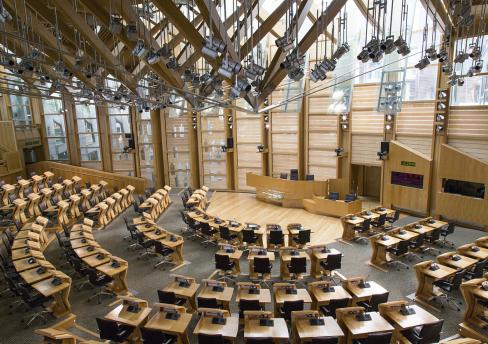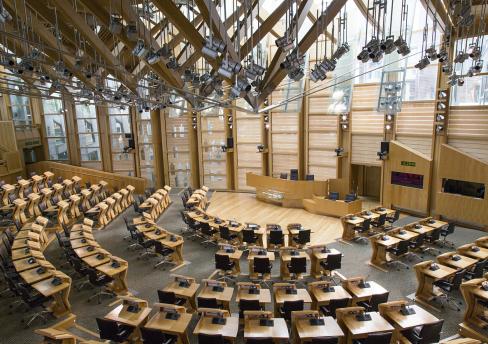The Community Empowerment (Scotland) Act 2015 is intended by the Scottish Government to empower community bodies, through ownership or control of land or buildings and by strengthening their voices and decisions about public services.
It covers a diverse range of empowerment matters - including community planning which I discussed in an earlier article and changes on business rates reliefs, football clubs and allotments. It also introduced the right to Community Bodies to force the sale of abandoned, neglected or detrimental land, which I discuss in another article.
In relation to the acquisition of properties by Community Bodies, aside from expanding the right to buy (which is a right of first refusal if the owner wants to sell) into larger urban areas, the 2015 Act also made other changes. Those changes give the initiative or "starting pistol" to the Community Body rather than the land owner - as the new rights can be triggered by the Community Body even if the owner does not wish to sell. One of the new rights is a community right to request ownership, lease or rights over publicly owned or leased land by way of an Asset Transfer Request or ATR. This right came into force on 23 January 2017.
Before making an ATR, the Community Body needs to be set up as one of three types of corporate bodies specified in the Act and meet a number of constitutional requirements. E.g. three quarters of the Community Body's members must be members of the community (which is defined by postcode units).
ATRs can be made to any public body which is a "relevant authority". The relevant authorities are listed in the 2015 Act, but the Scottish Ministers can add to and/or remove any from the list. Currently the following are on the list:
- Local authorities
- The Scottish Ministers
- Health Boards and Special Health Boards
- Scottish Water
- Boards of management of a college of further education
- British Waterways Board
- Crofting Commission
- Highlands and Islands Enterprise
- Scottish Enterprise
- National Parks
- Scottish Courts and Tribunals Service
- SEPA
- Scottish Fire and Rescue Service
- Scottish National Heritage
- Scottish Police Authority
- Regional Transport Partnerships
- Historic Environment Scotland
In this article, I will simply refer to these relevant authorities such as public bodies. It is worth noting that UK government departments do not fall within this definition.
A relevant authority must agree to an ATR unless there are reasonable grounds for refusing. In deliberating, the public body must take into account various things, including:
- the reason for the ATR;
- whether agreeing would be likely to promote or improve economic development, regeneration, public health or social or environmental wellbeing; and
- any benefits that might arise if the public body was to agree to, or adopt, an alternative proposal relative to the land - which would include another ATR or a proposal made by the public body themselves or any other person.
The ATR must specify, among other things:
- the type of ATR i.e. does the Community Body want to own the land or just take a lease of it or be given other rights over it;
- the reason for the request;
- the benefits to the community if the request is granted; and
- the price (if the ATR is for ownership) or the rent, duration and other commercial terms (if the ATR is for grant of a lease) or the nature and extent of rights (if ATR is for grant of rights).
The public body must make a decision and notify it (with reasons) to the Community Body within 6 months. If the decision is to agree to the ATR, then such notice should set out the terms and conditions on which the public body is prepared to transfer ownership, grant a lease or grant rights.
There is a right of appeal against the public body's decision.
Once an ATR has been submitted, the public body cannot sell, lease or otherwise dispose of the land (other than to the Community Body who made the ATR) until the ATR has been dealt with.
However, that prohibition does not apply where, before it received the ATR application, the public body had already advertised or otherwise exposed the land for sale or lease or had already begun negotiations for a sale or letting. Also the submission of an ATR could not stop a public body from carrying on with a proposed transfer or lease that had started before the ATR was received by the public body.
It will be interesting to see the extent to which this part of the Act is utilised by Community Bodies seeking to use publicly owned or leased properties. Public bodies must keep a register of all properties owned or leased by them. Such registers must be maintained physically and electronically - and be available for inspection by the public, free of charge. This degree of disclosure will increase opportunities for ATRs to be made.
The content of this webpage is for information only and is not intended to be construed as legal advice and should not be treated as a substitute for specific advice. Morton Fraser LLP accepts no responsibility for the content of any third party website to which this webpage refers. Morton Fraser LLP is authorised and regulated by the Financial Conduct Authority.










